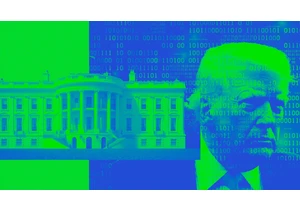The Unconditional Income Study, which began in 2019 and stands as one of the biggest direct income programs to date, finally released on Monday research related to its findings. The project found that, in general, distributing $1,000 monthly to recipients in Illinois and Texas provided improved financial flexibility without disincentivizing workforce participation. But just as interesting as the research itself is the group behind the work: The study was backed by OpenAI CEO Sam Altman, making it just the latest—and perhaps the largest—experiment in universal basic income (UBI) to come out of Silicon Valley.
Before Altman was making headlines there was Andrew Yang, the former tech executive and onetime candidate in the 2020 presidential election, who built his political platform on a “freedom dividend” of $1,000 to offset the job displacement from automation. Y Combinator first announced its Basic Income Project in 2016, and the Destination: Home program (which has about nine pilots running) gets a third of their funding from the tech world. Meanwhile, Both Elon Musk and Twitter cofounder Jack Dorsey have also expressed their support for UBI.
Still, despite dozens of tests and backing from some of the biggest names in American industry, UBI has yet to catch on—at least not on a macro level.
Why is Silicon Valley so interested in UBI?
UBI has long been a popular talking point for many tech giants. Much of their enthusiasm has to do with the products they are creating; if automation and artificial intelligence is set to replace jobs, UBI could be necessary to sustaining personal economic livelihood.
These forward-looking statements of UBI approval are spread across Silicon Valley. Yang argued that UBI payments would “enable millions of Americans to meaningfully transition in the time of economic transformation, including that brought by AI.” Altman, who donated to Yang’s campaign, called UBI an “obvious conclusion.”
But Karl Widerquist, an economist at Georgetown University-Qatar, takes issue with such framing. “They tend to focus on the more fanciful, sci-fi becomes reality aspect of it,” Widerquist says. “[That’s] still in the future when we have all these commanding reasons in the present why we should have basic income now.”
Silicon Valley has also seen a rightward shift during the 2024 presidential election, with many leading VCs and executives preferring the small government approach promised by Donald Trump.
Liz Fouksman, a social justice professor at King’s College London, sees UBI as a sort of ideological middle ground that can appeal to progressives and libertarians alike. (Indeed, pundits at Reason and the erstwhile Bleeding Heart Libertarians blog have come out to support the initiative.)
“There’s such a strong attachment there to this libertarian Ayn Randian mode of thinking,” Fouksman says. “There is a version of basic income that can fit really nicely into that. You just give people money and then get on with it.”
UBI pilots fail to spark significant political change
There have been some small political wins—it’s likely that a $750 guaranteed check, funded by a 3% corporate tax, will make it onto the Oregon ballot this year—but UBI has yet to make any headwinds on the federal level.
Part of that is because pilot programs, like Altman’s Unconditional Income Study, don’t do much to push the political needle. Widerquist wrote a book on the topic, arguing that these experiments fail to consider what’s holding UBI back. It’s a moral question, he says, not a question of effectiveness.
“For the most part, we know what basic income is going to do,” he says. “The question is, do we want what basic income does? No amount of experimentation is going to tell us the answer to that question.”
Much of UBI’s backlash has to do with the origin of its funding. Are Americans willing to endure higher taxes or cuts to other programs to institute a UBI? Pilots like Altman’s do not consider such questions; they merely look at the effectiveness once a guaranteed income has been installed.
“Even when the data shows that individuals use unconditional cash well, there is this resilient myth that cash no strings attached promotes laziness,” says Juliana Uhuru Bidadanure, a philosophy professor at New York University.
A further complication: A true UBI push from Silicon Valley would likely include self-taxation—something that, according to Widerquist, Altman and his ilk are unlikely to support. “What the tech industry people should do,” Widerquist adds, “is say, ‘We need this. I’m well off, I’m willing to make the sacrifices necessary to make this happen.’”
Melden Sie sich an, um einen Kommentar hinzuzufügen
Andere Beiträge in dieser Gruppe

A stable “release” version of Apple’s iOS 26 is due in September, but you can now try an in-progress version, called the public beta. It previews a revamped interface and new fea


">Tear a tanktop in half today for Terry Bollea, the entertainer better known as Hulk Hogan, who has died at age 71.
Though he was

Welcome to AI Decoded, Fast Company’s weekly newsletter that breaks down the most important news in

The data nerds are fighting back.
After watching data sets be altered or d

Chris Guillebeau spent years racing against time, visiting all 193 countries before he turned 35, hosting annual gatherings of thousands, and writing bestsellers like The $100 Startup. Bu

As my family settles into a whole new city and community, I’ve been eagerly exploring a variety of sites and services for discovering new gems and getting to know our area. And while our recent cr
